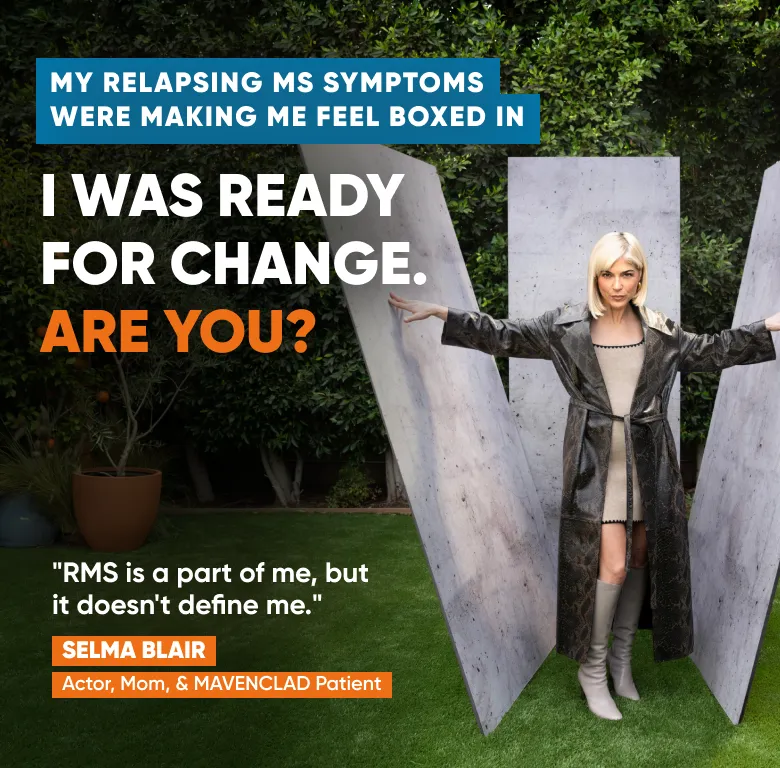were relapse free
compared to
63% ON PLACEBO
at the end of the
clinical trial†
ACTIVE INFLAMED LESIONS
MAVENCLAD 0.12 vs placebo 0.91‡
73% FEWER
NEW & ENLARGING LESIONS
MAVENCLAD 0.38 vs placebo 1.43‡
87% OF PATIENTS
free from 3-month confirmed
EDSS progression,§ compared to
81% ON PLACEBO
33% reduction in risk of
disability progression§
MAVENCLAD was studied in RMS patients to measure how well it works (efficacy) and to evaluate its safety. The trial compared MAVENCLAD to placebo at 96 weeks in these 3 ways.
Learn more about this data and the efficacy of MAVENCLAD at MAVENCLAD.com or sign up for more info below.
†Rate of relapses: MAVENCLAD 0.14 vs placebo 0.33.
‡Mean number of lesions.
§Expanded Disability Status Scale (EDSS) progression = an increase of ≥1 point sustained for ≥3 months.


